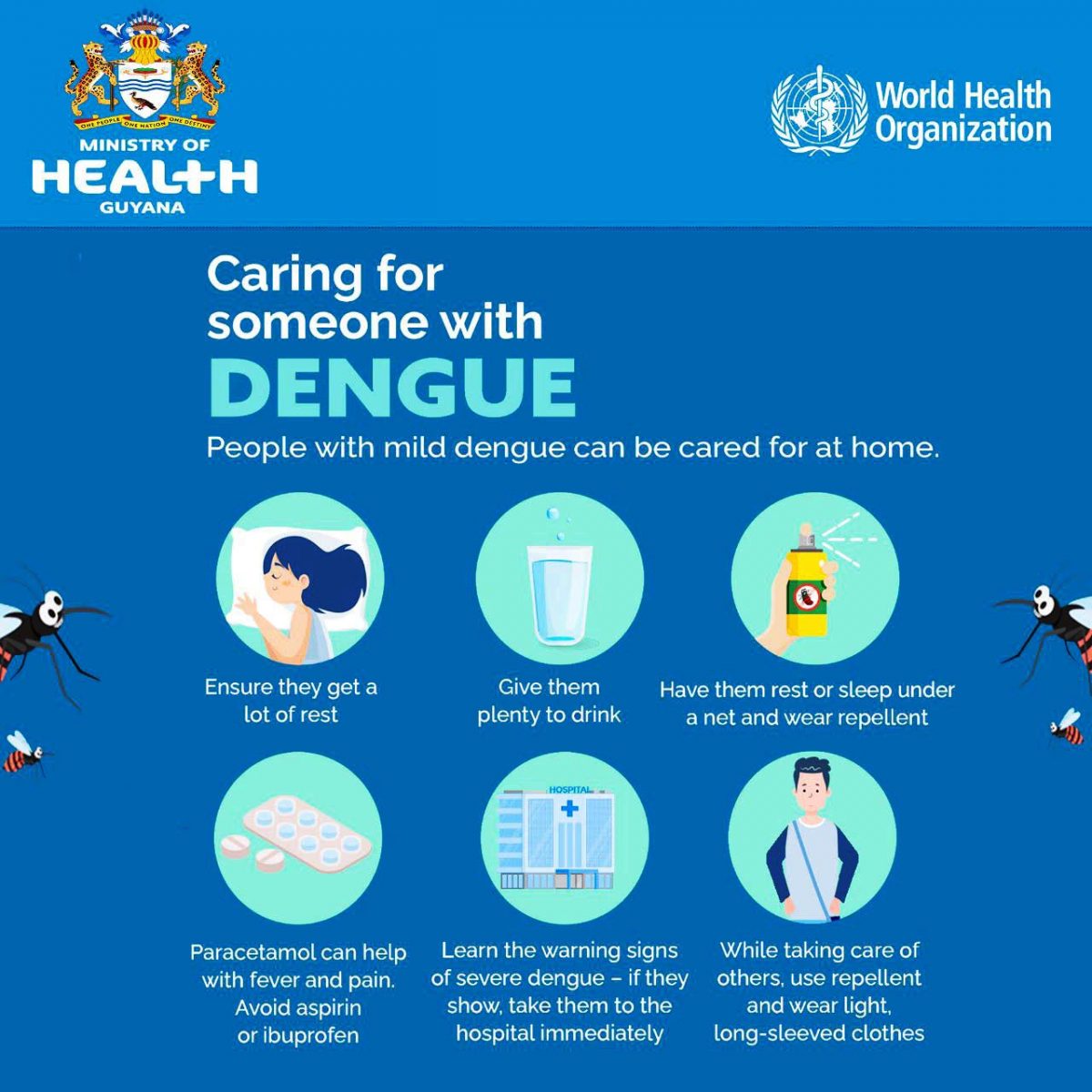The Ministry of Health (MoH) has issued an advisory about the rising incidence of mosquito-borne dengue in Guyana and the region and it said 11 persons have died here so far this year from the affliction.
In a release yesterday, the MoH informed that dengue is endemic to Guyana and the region of the Americas, and that every few years there is a cyclical increase in cases due to seasonal and climatic conditions, amongst other factors. It noted that there has been a significant increase in dengue cases in the Americas over the last few months with the highest number of cases observed in Bolivia, Brazil and Peru. The ministry also stated that it has recorded a total of 2,169 confirmed cases, with 239 patients hospitalised and 11 dengue-related deaths for this year.
According to the release, dengue is an acute febrile disease that is caused by the dengue virus which is transmitted by the Aedes aegypti mosquito. There are four serotypes of the dengue virus known as DENV 1 – 4, each of which can cause an infection. It cautioned that re-infection with a different serotype from that of a previous infection could result in a more severe form of the disease.
Further, persons with dengue may experience fever, eye pain (back of the eye), muscle/joint pain, skin rash, and headache and generalised weakness. And persons affected by severe dengue (haemorrhagic dengue) may develop complications that are associated with bleeding and clotting disorders.
The ministry noted that in order to ensure adequate prevention, diagnosis, and management of dengue, it has undertaken several actions to ease the burden of the disease locally. It informed that the Minister of Health, Dr Frank Anthony, has activated a Technical Working Group responsible for assessing, recommending, and implementing actions to mitigate this public health issue. The Technical Working Group has recommended several measures including a heightened public awareness campaign to promote environmental sanitation and hygienic practices, as well as public awareness on the prevention of dengue and other mosquito-borne diseases. These include several appearances on radio and television stations and frequent messages on the ministry’s social media platforms.
Concerning methods to prevent and curb transmission, several environmental and entomological measures have been increased across the country such as fogging (fumigation), residual spraying, home inspections, and distribution of larvicidal chemicals to communities through the Neighbourhood Democratic Councils (NDCs). Notably, a second cycle of fogging (fumigation) has commenced in most regions.
The MoH stated that it has increased the procurement and distribution of rapid diagnostic test kits and other laboratory supplies and equipment to ensure adequate diagnostic capacity. “Considering this disease does not have a cure, medication and medical supplies have been distributed in adequate quantity to all regions to ensure symptomatic treatment of all patients throughout the health care system in keeping with a revised national treatment guideline.”
As such, the MoH’s Technical Working Group will continue to assess the epidemiological situation and the progress of the implemented measures.
As it stands, the MoH is encouraging everyone to engage in source reduction especially around homes, schools and their surroundings. It stressed the importance of inspecting containers such as bottles, buckets, and old tyres, to ensure that they are covered, punctured or removed from the community. It was also pointed out that open water tanks are known breeding sites for mosquitoes and should always be secured by covering them with a net or a cover in addition to ensuring that all extra openings are sealed. It also reminded that tanks should be kept clean and water should not be allowed to lay stagnant for too long.
And for those persons residing in and around mining camps where malaria cases are more prevalent, the ministry advises sleeping under treated mosquito nets which are provided free of cost through the Vector Control Services Unit. Personal protection measures include the use of long-sleeved clothing and mosquito repellents.
Persons requiring more information on dengue, malaria, and other mosquito-borne diseases, can contact the Vector Control Services of the Ministry of Health on telephone number (592) 225-8973.




